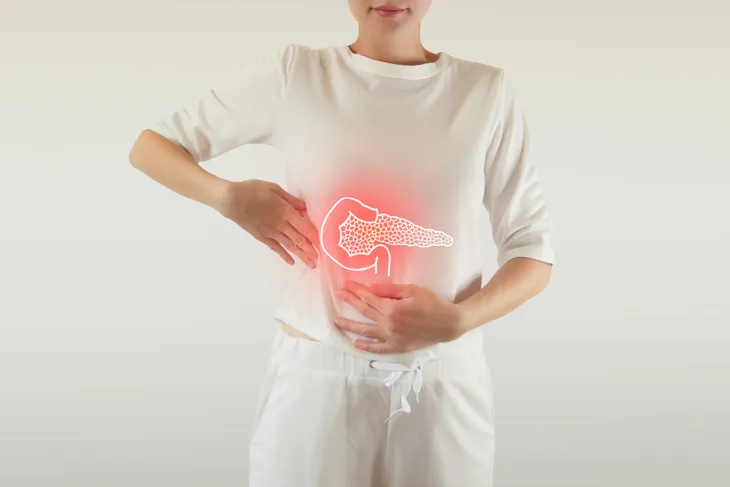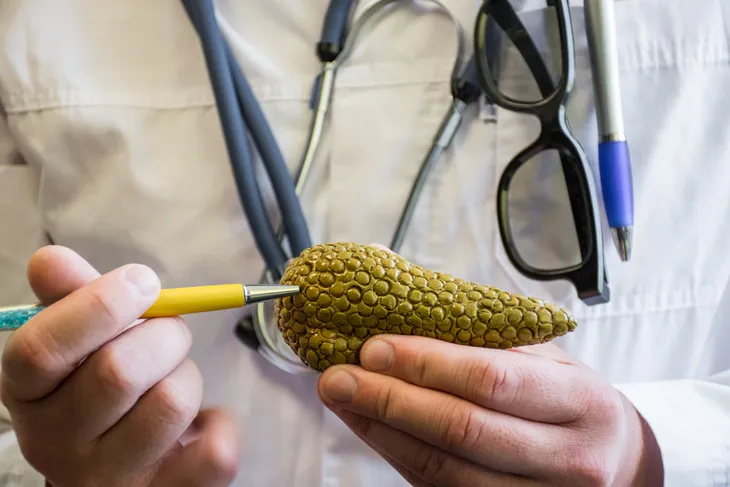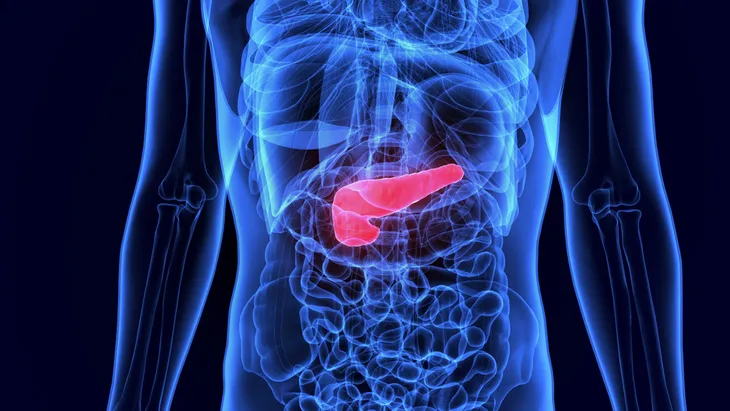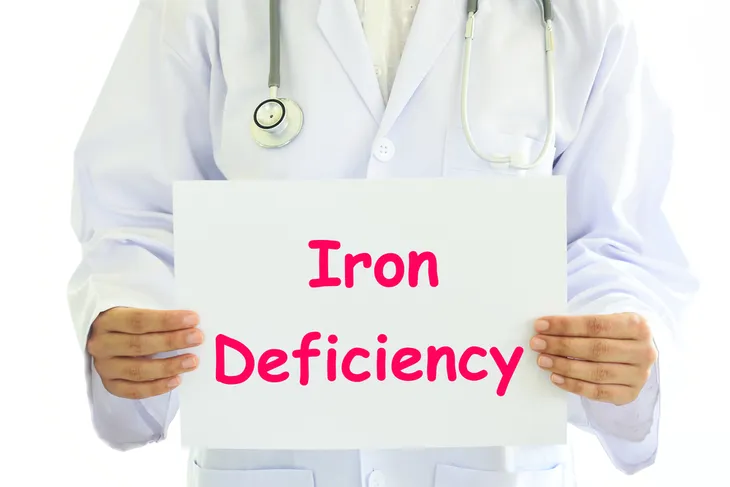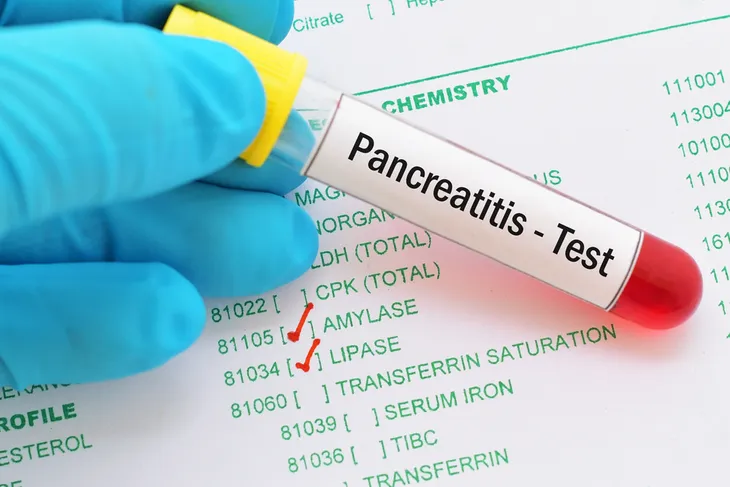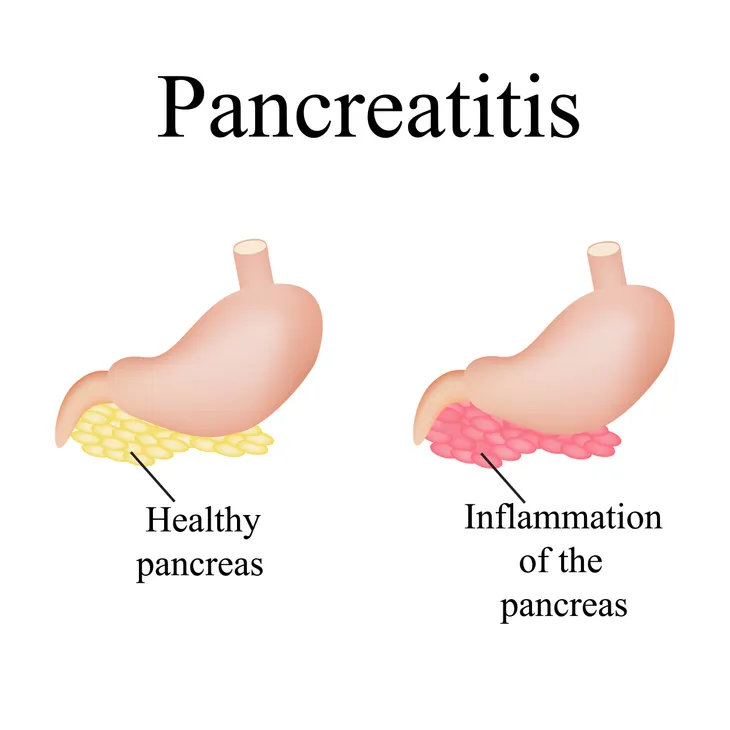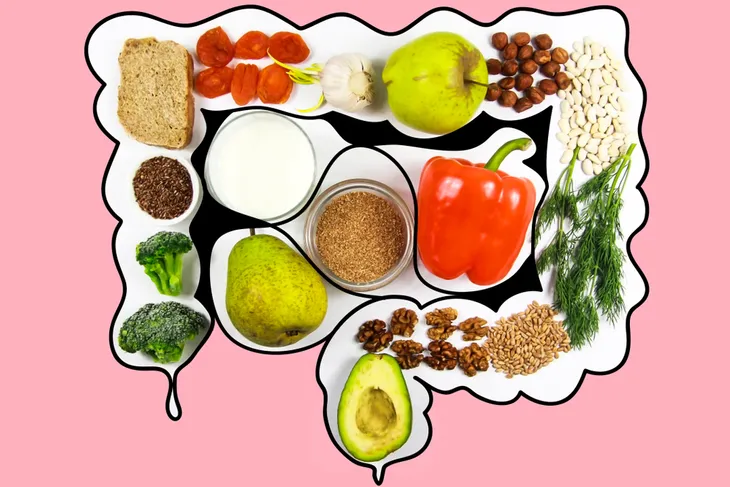Your pancreas is a vital organ that holds the important job of helping digest food, and managing your use of sugar for energy after digestion, says Hopkins Medicine. The organ is small, roughly the size of your hand, and is located behind your stomach.
When your pancreas is functioning poorly, you’ll begin to notice digestion problems which can wreak havoc on your appetite, and cause abdominal pain. Several conditions can damage the pancreas which causes it to either stop or block the release of essential enzymes, ultimately resulting in exocrine pancreatic insufficiency (EPI). Although EPI is rare, it is a serious digestive problem that requires medical attention. Here’s everything you need to know.
What Does the Pancreas Do Anyway?
Many people don’t talk about the pancreas often but as mentioned, it does have a very important job. “The pancreas plays a vital role in converting the food into the energy essential for the body,” explains MedicineNet.
Its two main functions are helping digestion (known as an exocrine function) and helping control blood sugar levels (known as an endocrine function). The exocrine function produces natural juices known as enzymes which are essential for breaking down food. The source says the pancreas is responsible for making about 8-ounces of digestive juice filled with enzymes each day.
What You Need to Know About EPI
Long-term damage to your pancreas can cause poor pancreas function which in time, can lead to exocrine pancreatic insufficiency. This condition causes you to lack the digestive enzymes you require to properly digest food. This disruption can lead to more complications such as your body’s inability to absorb essential nutrients.
Everyday Health says, “EPI is relatively rare, because about 90 percent of your pancreas has to be nonfunctioning or destroyed for it to occur.” EPI can be caused by several conditions which we’ll get into more detail later.
Signs of Poor Pancreas Function
You may not notice any signs of poor pancreas function at first. However, as your pancreas becomes more damaged you’ll begin to develop telltale signs of exocrine pancreatic insufficiency.
Let’s take a look at these symptoms next. And remember, EPI is serious, and if you develop any of the following symptoms, be sure to contact your doctor right away.
Abdominal Pain
One of the most common signs of poor pancreas function is abdominal pain. It can typically start in the middle of your abdomen and then it may radiate to your mid or lower back. If this pain lingers for a few weeks, it could be a sign of pancreatic cancer, says Prevention.
Keep in mind, abdominal pain can be a sign of many things ranging from mild to serious so try to remain calm. Talk to your doctor about your abdominal pain to find out if it’s a cause for concern.
Changes in Stool
Noticing changes in your stool can be alarming especially if you’re particularly regular. One sign of EPI you should look out for is light-colored stool that floats. This can indicate poor nutrient absorption.
When the pancreas is functioning poorly the lack of enzymes can cause your stool to look paler, less dense, and in some cases even oily or greasy. Prevention says the toilet water may also have a film that looks like oil. This indicates you’re excreting dietary fat that your body couldn’t break down. The occasional change in stool is normal, but if all your bowel movements begin showing these signs, contact your doctor.
Nauseous After Eating Fatty Foods
Feeling nauseous is never fun and while it’s not always a cause for alarm, it could indicate a problem with your pancreas. This is especially true if you feel nausea after eating fatty foods.
Prevention says, “because your pancreas produces enzymes that help your digestive system break down fat, diseases that mess with your pancreas tend to mess with your body’s fat-digesting capabilities, which leads to nausea.” Pay attention to how you feel after eating foods particularly high in fat such as burgers, nuts, and avocados.
Vitamin Deficiencies
When your pancreas isn’t functioning properly, your body won’t be able to absorb essential nutrients. This can lead to vitamin deficiencies which may result in non-digestive symptoms.
Everyday Health says common vitamin deficiencies associated with exocrine pancreatic insufficiency are vitamin B12, iron, calcium, and folate. You should watch for telltale signs of a vitamin deficiency such as a raised, scaly rash, bone pain, muscle cramps, easy bruising, and night blindness.
Risk Factors
Exocrine pancreatic insufficiency is typically connected to other conditions. This means individuals who have chronic pancreatitis are more at risk for developing EPI.
Heavy alcohol use and genetics can play a role in the development of pancreatitis, ultimately increasing your risk of EPI as well. Finally, “cystic fibrosis is an inherited condition, so if you carry the gene your children are more likely to have it,” says Healthline.
Causes
When your pancreas stops releasing enzymes to assist with normal digestion, EPI can occur. But a condition has to first occur to cause damage to your pancreas leading to poor pancreas function, so what is it?
Healthline says, “a variety of conditions or events can damage your pancreas and lead to EPI,” such as acute, chronic, or autoimmune pancreatitis. Diabetes, a recent pancreas or digestive tract surgery, and pancreatic cancer can also lead to EPI. Finally, the source also notes celiac disease, inflammatory bowel disease, and a rare disease known as Zollinger-Ellison syndrome may also lead to EPI.
Treatment
The goal of treatment with EPI is to help relieve your symptoms and to help your body absorb the vital nutrients it needs. There are a few ways to treat EPI starting with lifestyle changes.
For starters, your doctor may recommend a few changes to your diet. To help encourage smoother digestion you’ll want to ensure you’re eating a healthy well-balanced diet that consists of a balance of the right fats, and high-fiber foods.
If you have a vitamin deficiency, your doctor may recommend vitamin supplements. Your doctor may also write you an enzyme supplement prescription which is to help replace the enzymes your pancreas isn’t making.
Prevention Tips
Some things are out of your control including some of the conditions that lead to EPI. That said, there are a few factors that are within your control. For example, if you drink a lot of alcohol often, it might be time to stop as we know heavy alcohol use can lead to pancreatitis.
Healthline also notes heavy alcohol use combined with a high-fat diet can also increase your chances of pancreatitis so if you want to support a healthy pancreas, avoid the alcohol, and eat a well-rounded healthy diet with moderate fats. Talk to your doctor to find out more ways to keep your pancreas healthy!

